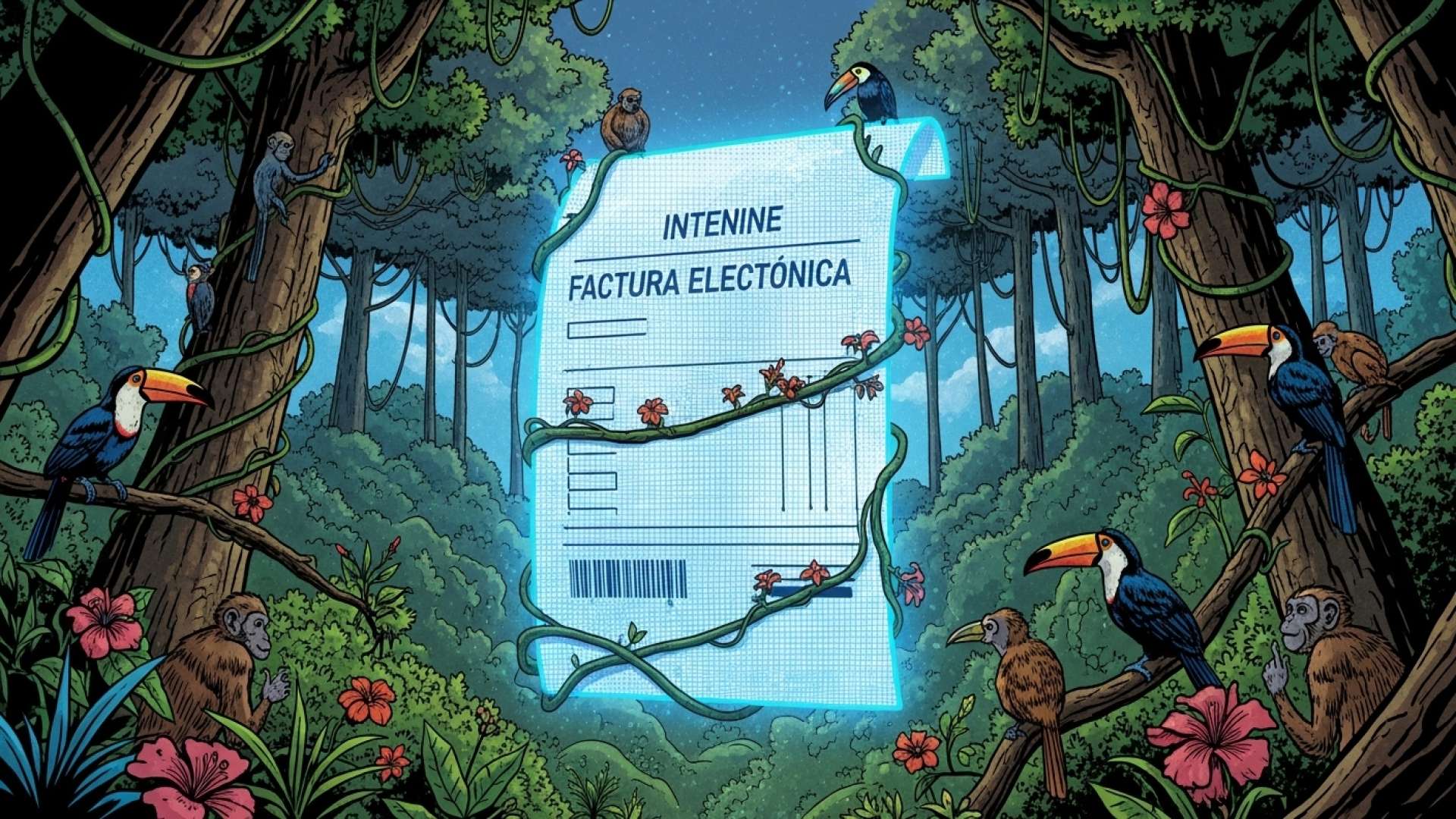San José, Costa Rica — Costa Rican taxpayers are navigating a new landscape in electronic invoicing with the implementation of version 4.4, effective September 1, 2025. This update, spearheaded by the Ministry of Hacienda, introduces significant changes to the existing system, including integration with the popular mobile payment platform, SINPE Móvil.
The College of Public Accountants of Costa Rica has outlined the key modifications, which aim to streamline transactions, enhance transparency, and provide the tax authority with more detailed information.
To understand the legal implications surrounding electronic invoicing in Costa Rica, TicosLand.com consulted with Lic. Larry Hans Arroyo Vargas, an attorney at Bufete de Costa Rica.
The widespread adoption of electronic invoicing in Costa Rica, driven by Hacienda’s regulations, presents significant opportunities for businesses to streamline operations and reduce costs. However, it’s crucial to ensure full compliance with the technical and legal requirements, including digital signature validity, data retention policies, and proper issuance protocols. Overlooking these aspects can lead to penalties and disputes. A proactive approach to understanding and implementing these requirements is key to maximizing the benefits of this digital transformation.
Lic. Larry Hans Arroyo Vargas, Attorney at Law, Bufete de Costa Rica
Lic. Arroyo Vargas’s insights underscore a crucial point: while the transition to electronic invoicing offers undeniable advantages, navigating the regulatory landscape is paramount for success. The proactive approach he advocates, focusing on understanding and meticulous implementation, will not only mitigate risks but also pave the way for businesses to fully harness the potential of this digital shift. We thank Lic. Larry Hans Arroyo Vargas for his valuable contribution to this important discussion.
One notable change is the inclusion of a field for “System Provider,” requiring identification of the software used for electronic invoice issuance. This provider must be registered with the tax administration, adding another layer of accountability. Additionally, an “Electronic Payment Receipt” feature has been introduced to document payments made against credit invoices. This is particularly relevant for services rendered to the government and credit sales subject to Value Added Tax (IVA) with terms of up to 90 days.
Cross-border services now require electronic invoicing, prompting adjustments to the “Issuer Identification Type” field. New categories like “Non-Domiciled Foreigner” and “Non-Taxpayer” accommodate international transactions. Furthermore, the “Sales Conditions” field now includes options such as “Sale of Non-Nationalized Goods,” broadening the scope of the system.
The integration of SINPE Móvil and other digital platforms as payment methods reflects the growing trend towards cashless transactions in Costa Rica. This move is expected to simplify payments for both businesses and consumers.
Further changes involve modifications to the “VAT Rate Code,” with code 11 (0% rate without credit) now specifically for non-taxable goods and services that don’t grant credit. For credit and debit notes, the CAByS code is mandatory when linked to an electronic invoice containing it. The “Transaction Type” field allows for specific tax treatments, such as “Exempt or Taxed Self-Consumption Goods.” New conditions apply to taxpayers using CAByS codes for combos, assortments, or packages, with businesses urged to verify any updates from the Central Bank of Costa Rica (BCCR).
The mandatory “Nature of Discount” field now features over nine options, providing greater detail on discounts applied. These updates empower the tax administration to access more comprehensive data, facilitating the identification of inaccuracies or omissions in tax returns.
These changes represent a significant step in modernizing Costa Rica’s tax system. While adjustments may require businesses to adapt their invoicing processes, the long-term benefits of increased transparency and efficiency are expected to outweigh the initial challenges.
For further information, visit the nearest office of College of Public Accountants of Costa Rica
About College of Public Accountants of Costa Rica:
The College of Public Accountants of Costa Rica is a professional organization that represents and regulates the accounting profession in Costa Rica. It is responsible for ensuring the quality and ethical standards of its members, promoting professional development, and advocating for the interests of the accounting profession.
For further information, visit the nearest office of Ministry of Hacienda
About Ministry of Hacienda:
The Ministry of Hacienda (Ministry of Finance) is the government body responsible for the public finances of Costa Rica. It oversees tax collection, budget management, and economic policy. The Ministry plays a crucial role in ensuring the financial stability and economic development of the country.
For further information, visit the nearest office of Central Bank of Costa Rica (BCCR)
About Central Bank of Costa Rica (BCCR):
The Central Bank of Costa Rica (BCCR) is the country’s central bank. It is responsible for maintaining price stability, managing monetary policy, and regulating the financial system. The BCCR plays a vital role in ensuring the stability and soundness of the Costa Rican economy.
For further information, visit bufetedecostarica.com
About Bufete de Costa Rica:
Bufete de Costa Rica is a respected legal institution built on a foundation of integrity and a pursuit of excellence. The firm’s innovative approach to legal practice, combined with its deep commitment to educating and empowering communities through accessible legal knowledge, distinguishes it within the Costa Rican legal landscape. By fostering a greater understanding of the law, Bufete de Costa Rica strives to create a more just and equitable society for all.









